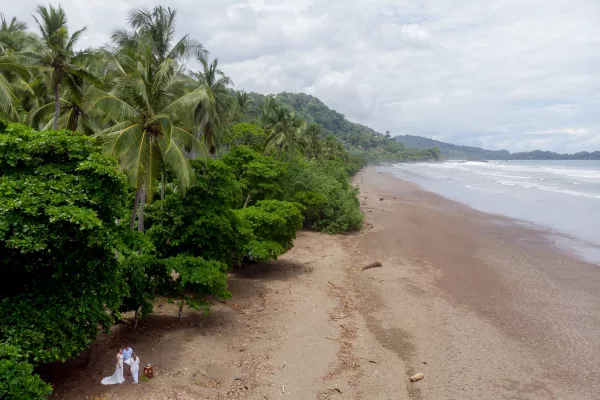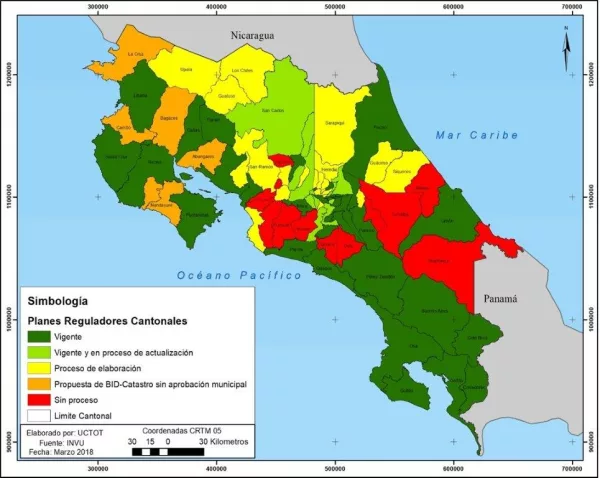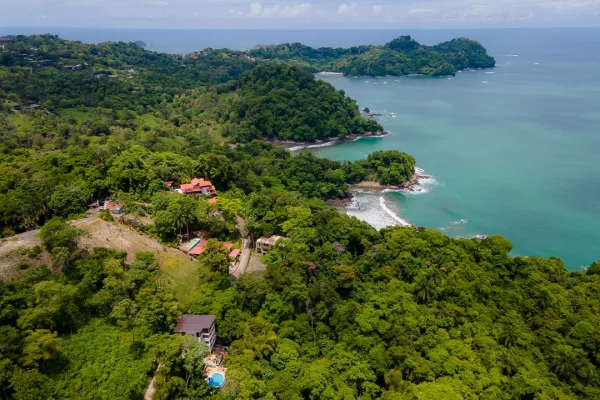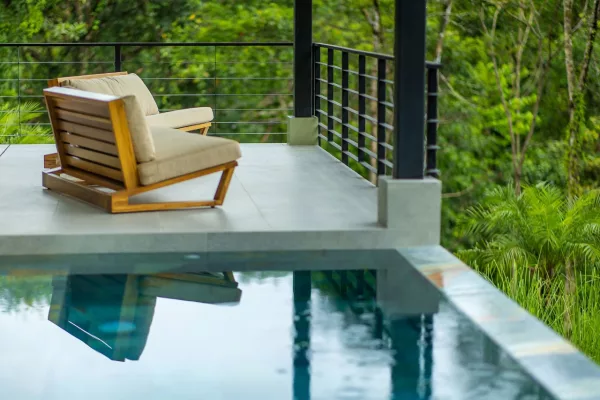Lots of people fall in love with Costa Rica immediately upon seeing its beautiful beaches and verdant rainforests. Is that you?
However, loving a place for vacation and buying land there are two very different things. You might be surprised at the challenges that arise during this undertaking.
To help you plan, here are the top 5 things to know before buying land in Costa Rica.

Before even thinking of buying anything, make sure you have studied the surroundings of the place carefully. Would you be happy living there? Or if you want to build a vacation home to rent, is it in an area that is attractive to tourists?
Are there basic services around? Hospital? Education? (if you have kids). Especially if you’re coming from a foreign country, the amenities available might not be exactly what you’re used to. It’s best to investigate this thoroughly before buying land and being stuck when you find out that X thing isn’t available and you really need it.
So check out the grocery shops, drugstores, etc. And don’t forget the beauty salon, yes very important! If these needs are not covered then buying land in that area may not work well for you.
Also, take a close look at your future neighbors, those are crucial!

Like any other country in the world, Costa Rica has its own zoning maps which help in the organized development of the country.
Before buying land you must know how the property is zoned. There can be restrictions you need to know about before making any plans. For example, some properties have to be at least 5000m2 to be able to build one house. That’s an important fact to know before making your next investment.
Also, if you have dreams of building a beachfront home, you should know that Costa Rica highly protects and regulates the land 200 meters inland from the high tide line on all coasts.
No one can own the first 50 meters and the next 150 meters are highly regulated with individuals only receiving concession rights, not actual ownership. If you want to use land in this zone, make sure you do your due diligence and fully understand what you are getting yourself into.
Also, you must look at the “Uso de Suelo” for the property, which the seller should be able to give you. The Uso de Suelo (Land Use) document will also tell you about the building restrictions for your land.
Watch out that some properties can have mixed uses, half residential and half protected forest. On the protected forest part, you can’t build anything and this could be a big obstacle for your future plans.

Though the idea of tucking yourself into the Costa Rican countryside might sound like a delightful idea, beware. Buying property in the middle of nowhere with nobody close enough to call for help if you need may not be the best idea. There are dangers in this tropical country (poisonous snakes, spiders, etc) that you may not know how to deal with.
Another consideration is safety from thieves. A nice home isolated in the middle of nowhere makes a tempting target for those looking to make a quick buck at your expense.
I understand, I like my privacy too. But you have to be wise about the place you choose and how far away you put yourself from other people.

If you’re planning on building a new home in Costa Rica, it is crucial that your property has water and power services available to get your construction permits. Without them, you’re lost. It is a huge advantage if the property already has water and power, as getting these utilities can be a bit of a challenge.
A water letter can take a few weeks, even months to get, so plan in advance and don’t let it take you by surprise. There is no public water access in many areas, and you’ll need a concession to drill a well. Drilling a well is an unknown expense that can add up quickly so you must be prepared for it.

Finally, find a really good lawyer whom you can trust. Unfortunately, there are many unscrupulous lawyers in Costa Rica that make the process more challenging and more expensive than it has to be.
But there are lots of hospitable, friendly people in this country as well. Get to know the locals and ask for referrals from them. Don’t go just with any lawyer with a fancy name. Find someone who has a good reputation in the community and is well-respected.
Once you find the right person to assist you with the purchase, make sure you get all the studies of the property. You should hire a topographer to corroborate the limits of the property because you’ll never know what surprises you might find literally around the corner.
Aside from corroborating the legal boundaries of the property, a topographer can help you determine if the land is suited for your purposes. A lot of rain falls in this tropical country and erosion and flooding are big concerns in many areas. A topographer can help you plan your constructions to help avoid catastrophes in the future.
Buying land in Costa Rica is a dream come true for many people. However, it isn’t always cut and dried so it is essential that you do your due diligence before making any offers.
The biggest things to keep in mind are to always do your research without rushing into anything and find a reputable lawyer to help you with the transaction. Do those two things well and your land-buying experience in Costa Rica should be a pleasant undertaking.
If you enjoyed learning about these tips and would like to learn more about what I do, follow the link below!
https://aurea-designs.com/projects/nature-inspired-costa-rica-designs/
